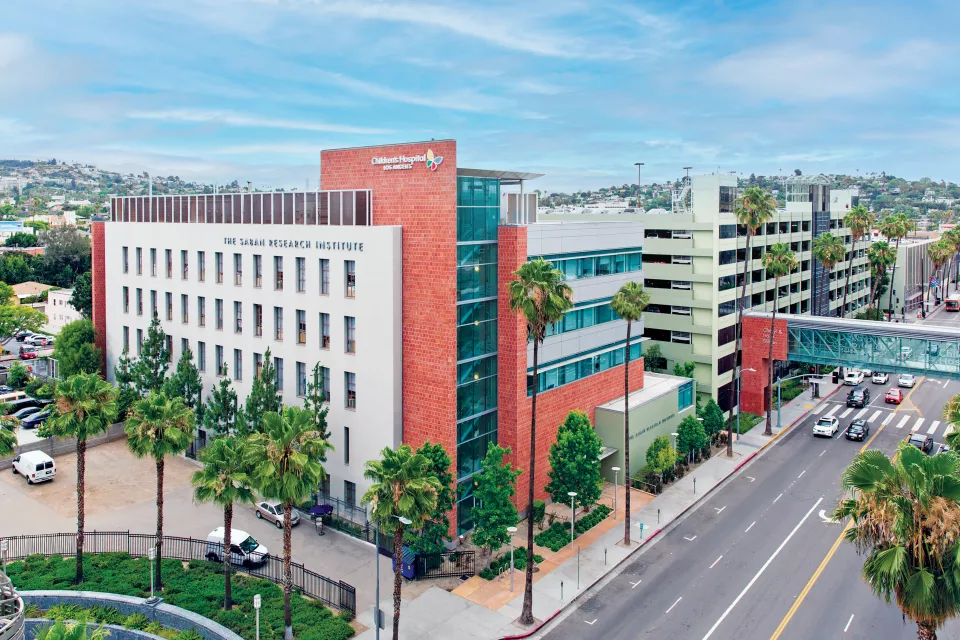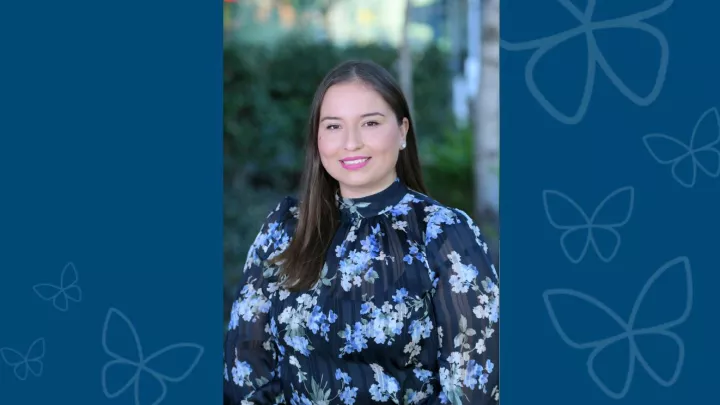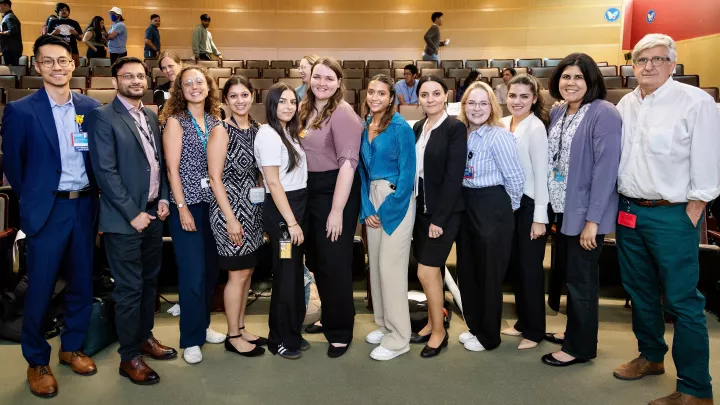
Pat Levitt, PhD

Kathie Eagleson, PhD
Primary Research Projects
Development of Neuronal Diversity, Neural Circuitry and synapses in Neocortical Networks
Impact of Early Adverse Experience on Brain Development
Influence of Sex on Response to Early Life Stress
Kathie Eagleson received her PhD from University of Sydney. Her research has two primary focuses. The first examines the role of the MET tyrosine kinase receptor in synapse development and circuit formation. This research includes studies to determine the specific cerebral cortical circuits which are most dependent upon MET for development. Disruptions in the expression of this receptor are associated with an increased risk for autism spectrum disorder and Rett syndrome. Currently, she is using a single-cell RNA sequencing approach to identify transcriptomic signatures of MET-expressing cells. The second project measures the sex-dependent effects of early life stress on the developing brain using an established limited-bedding mouse model. Specifically, Kathie is using proteomics, biochemical and anatomical approaches to determine acute (before puberty) and long-term (adult) adaptive responses in mitochondrial and metabolic function following early life stress.

Anna Kamitakahara, PhD
Department: Department of Pediatrics
Division: Neurology
Research Focus: Neural development and gut-brain circuits controlling feeding behavior
Primary Research Projects
Impact of Early Life Experience on Vagal Neurons and Circuits
Modeling Neural Development of Gut-Brain Circuits Using Human iPSCs
Anna Kamitakahara received her PhD in Neuroscience from the University of Southern California. Her research focuses on understanding the functional organization and perinatal development of the vagus nerve that connects the brain and the gut. She is working to advance the field in her two ongoing projects that examine the impact of early life stress, and the early life nutritional environment on developing vagal sensory and parasympathetic nervous system circuits.

Manal Tabbaa, PhD
Primary Research Project
Integrating Genetic Reference Panels with Neurodevelopmental Models to Discover Mechanisms Regulating Behavioral Heterogeneity
Manal Tabbaa received her PhD in Neuroscience from Florida State University. Manal’s research leverages genetically diverse reference panels to model individual differences in complex behaviors and susceptibility to a high-confidence autism-risk gene. The goal of these projects is to address the challenging but highly significant issue of clinical heterogeneity and genetic risk factor susceptibility in neurodevelopmental disorders.

Sadie Bennison, PhD
she/her/ella
Primary Research Projects
Impact of Early Life Experience on Vagal Neurons and Circuits
California Initiative for Advancing Precision Medicine – Adverse Childhood Experiences Family First Study
Sadie received her PhD in Neuroscience from Drexel University College of Medicine with a focus on the cellular and molecular mechanisms of cortical development. Sadie’s postdoctoral work focuses on how early life stress influences the developing gut-brain connection via the vagus nerve. Preclinically, her work focuses on gene expression changes in the vagal system due to early life stress. She aims to bridge preclinical and clinical studies in the lab by implementing non-invasive measures of vagal tone in the ACE’s Family First Study. By combining preclinical and clinical work she hopes to develop scalable biomarkers of early life stress for use in the clinic.

Meaghan McCoy, BA
she/her/ella
Primary Research Project
Impact of Early Life Experience on Vagal Neurons and Circuits
Meaghan McCoy graduated from California State University, Long Beach with a BA in Biological Anthropology. After graduation, Meaghan joined the Levitt Lab as a research assistant, working primarily on projects examining the impacts of early life stress and early life nutrition on the development of vagal circuits that connect the gut and the brain. Meaghan has since transitioned to a PhD student role in the lab and is focused on further developing the early life nutrition project, utilizing a combination of behavioral, cellular, and molecular techniques. Meaghan aims to use her research to broaden the understanding of how limited access to resources (such as nutritious foods) leads to adverse health outcomes, as well as advocate for social welfare policies that address these issues.

A'di Dust, BA
they/them
Primary Research Project
California Initiative for Advancing Precision Medicine – Adverse Childhood Experiences Family First Study
A’di Dust received a Bachelor of Arts degree in Computer Science from Macalester College and currently is a PhD student in the Interaction Lab in the Computer Science Department at the University of Southern California. Together with their mentor, Professor Maja Mataric, A’di has collaborated with the Levitt Lab since the summer of 2023. A’di’s research focuses on identifying persistent and momentary emotional labor in mother-infant interactions in relation to the affective state of the infant and the mother. They are currently working on incorporating multiple modalities to better understand and identify points of stress related to infant interaction, and stress from more persistent factors such as depression and anxiety.

Amanda Whipple, AA
she/her/ella
Primary Research Project
All Projects Using Mouse Models of Neurodevelopmental Disorders
Amanda Whipple received an Associate's Degree in Business at Western International University. Her primary responsibility is to manage the neurodevelopmental models in our colonies. She ensures the health and well-being of our colonies, including appropriate maternal care following pregnancies. Amanda performs nearly all the genotyping of the genetic lines to determine those who carrying gene mutations. She also serves as the primary liaison with the Animal Care Facility at CHLA. She is also responsible for doing the supply ordering for the whole lab.

Alexis Gamez Rodriguez, BS
she/her/ella
Primary Research Project
Utilizing Genetic Reference Panels with Neurodevelopmental Models to Understand Genetic Variability and the Role it May Play in Behavioral Heterogeneity and Neuro-Mechanisms
Alexis received a BS from California State University of Fullerton. From there continuing her education to receiving an MS in Biomedical Sciences from the University of California Riverside. She joined the Levitt Lab in September 2022. Alexis’s research focuses on looking at genetic background differences in mouse models to study how genetics can impact behavioral development and brain mechanisms. Notably in doing so aims to understand better how a population with genetic variation differences can be attributed to resilience and susceptibility towards a high-confidence autism-risk gene. Alexis hopes to continue her research interests to focus on children and benefit children’s health.

Kameelah Gateau, MD, MS
she/her/ella
Primary Research Project
California Initiative for Advancing Precision Medicine – Adverse Childhood Experiences Family First Study
Dr. Kameelah Gateau is an Assistant Professor of Pediatrics at the University of Southern California Keck School of Medicine and Attending Neonatologist at Children’s Hospital Los Angeles. She did her Residency and Chief Residency in pediatrics at Children's Hospital Los Angeles. She completed her Neonatal-Perinatal Medicine Fellowship at Los Angeles County + University of Southern California Medical Center. Her research interests include the ecobiodevelopmental model of childhood health and its interaction with the toxic stress response in the perinatal/neonatal period. She is the clinical research lead for the Family First Study and is dedicated to furthering a diverse, inclusive, and equitable environments in research, clinical practice and for the families we serve.

Sadie Bennison, PhD
she/her/ella
Primary Research Projects
Impact of Early Life Experience on Vagal Neurons and Circuits
California Initiative for Advancing Precision Medicine – Adverse Childhood Experiences Family First Study
Sadie received her PhD in Neuroscience from Drexel University College of Medicine with a focus on the cellular and molecular mechanisms of cortical development. Sadie’s postdoctoral work focuses on how early life stress influences the developing gut-brain connection via the vagus nerve. Preclinically, her work focuses on gene expression changes in the vagal system due to early life stress. She aims to bridge preclinical and clinical studies in the lab by implementing non-invasive measures of vagal tone in the ACE’s Family First Study. By combining preclinical and clinical work she hopes to develop scalable biomarkers of early life stress for use in the clinic.

Dianna Guerrero Jimenez, BS
she/her/ella
Primary Research Project
California Initiative for Advancing Precision Medicine – Adverse Childhood Experiences Family First Study
Dianna received a BS in Public Health from California State University Northridge. She has experience in administering and leading projects that involve community education and the promotion of maternal and infant health. She is driven by her passion for health equity, inclusive representation in research, and community engagement. Dianna would like to continue contributing to efforts that address how early life experiences and environment shape long-term health outcomes. She also enjoys greenspaces and lives with plenty of houseplants.

Nicole Dauz Fonacier, BA
she/her/ella
Primary Research Project
California Initiative for Advancing Precision Medicine – Adverse Childhood Experiences Family First Study
Nicole graduated from the University of California, Los Angeles (UCLA) with a major in Psychology and a minor in Education Studies. She was previously a Psychology Research Opportunities Programs (PROPS) Scholar and Research Intern in the UCLA Brain and Body Lab directed by Dr. Bridget Callaghan. Nicole’s research focused on emotion processing & regulation, with an emphasis on the development of alexithymia: a trait defined as the difficulty in identifying and describing how one feels. She plans to attain a PhD in Developmental Psychology to continue exploring how children develop their emotional literacy and how adverse childhood experiences influence emotion understanding.

Evelyn Romo, BA
she/her/ella
Primary Research Project
California Initiative for Advancing Precision Medicine – Adverse Childhood Experiences Family First Study
Evelyn graduated from the University of California, Berkeley with majors in Neurobiology and Spanish. In her time at Cal Evelyn had the opportunity to work as a Student Researcher in Dr. De La Rosa’s lab. With deep interests in community health and bridging the health equity gap, Evelyn was excited to assist in a Clinical Research Study being conducted by UCSF Children’s Hospital and the R.O.S.I.E. lab in Berkeley. The project was an Adverse Childhood Experiences (ACEs) study, which is where she fell in love with ACEs and learned more about child development. Pairing her interests in ACEs studies and passion for neurobiology, her role here at the Levitt Lab combines the best of both worlds, allowing her the opportunity to learn more about child neurodevelopment all while making contributions to greater pediatric care.

Aimé Ozuna, MPH
she/her/ella
Primary Research Project
California Initiative for Advancing Precision Medicine – Adverse Childhood Experiences Family First Study
Aimé Ozuna received a BA in International Relations and Spanish from University of California, Davis and a Master’s in Public Health from University of Southern California. She has substantial experience working with children and infants in research studies. Aimé’s research interests include infant cognitive and social development and mental health in children and adolescents. She is passionate about ensuring adequate representation for diverse populations in research projects in our laboratory and across CHLA. Aimé plans to attend medical school and specialize in pediatrics or obstetrics/gynecology.

Jenny Legido, BA
she/her/ella
Primary research projects:
- California Initiative for Advancing Precision Medicine – Adverse Childhood Experiences
Family First Study
Jenny graduated from Middlebury College in Vermont, with a major in Neuroscience and a minor in Spanish. As a student researcher in Dr. Zhai’s lab, she investigated the development of self-regulation and its neural correlates among at-risk youth, as well as their contribution to substance and behavior addictions. Jenny is driven by a passion for community engagement, supported by extensive volunteer experience, and is especially committed to highlighting the importance of early childhood interventions to promote positive lifelong development.



